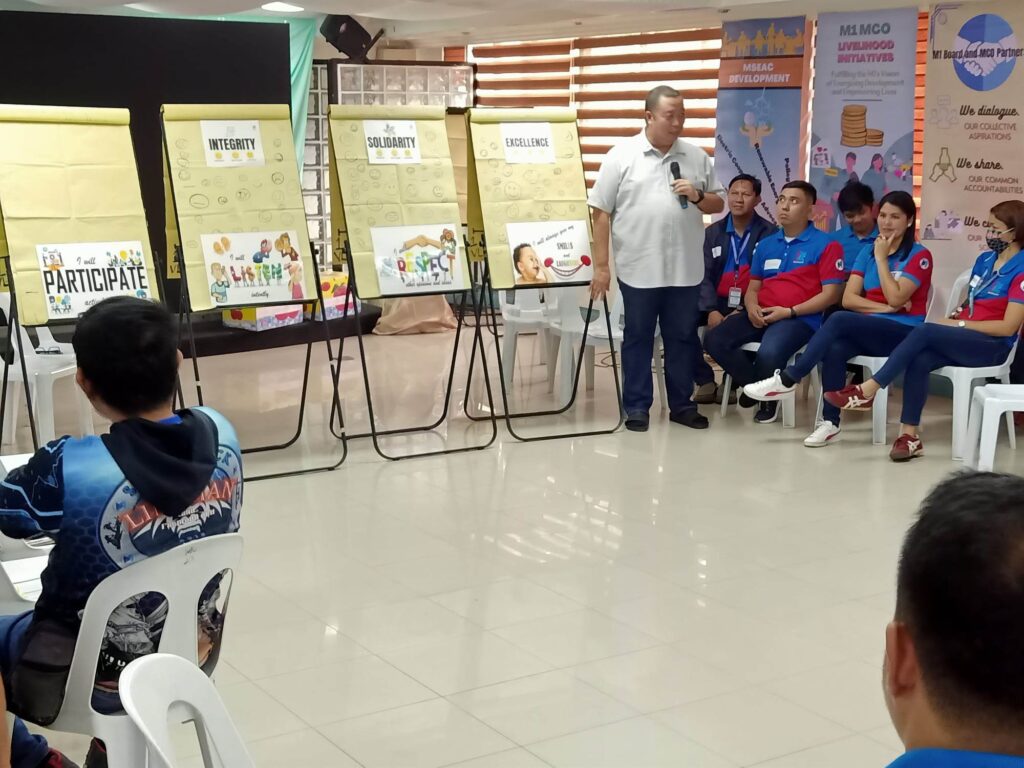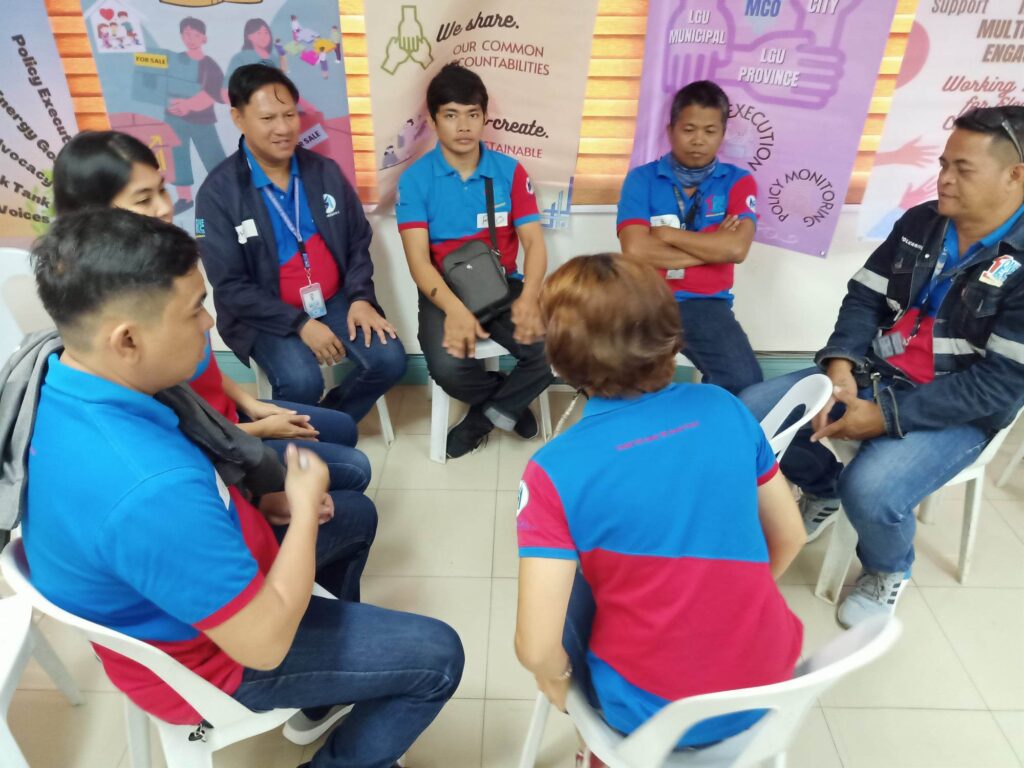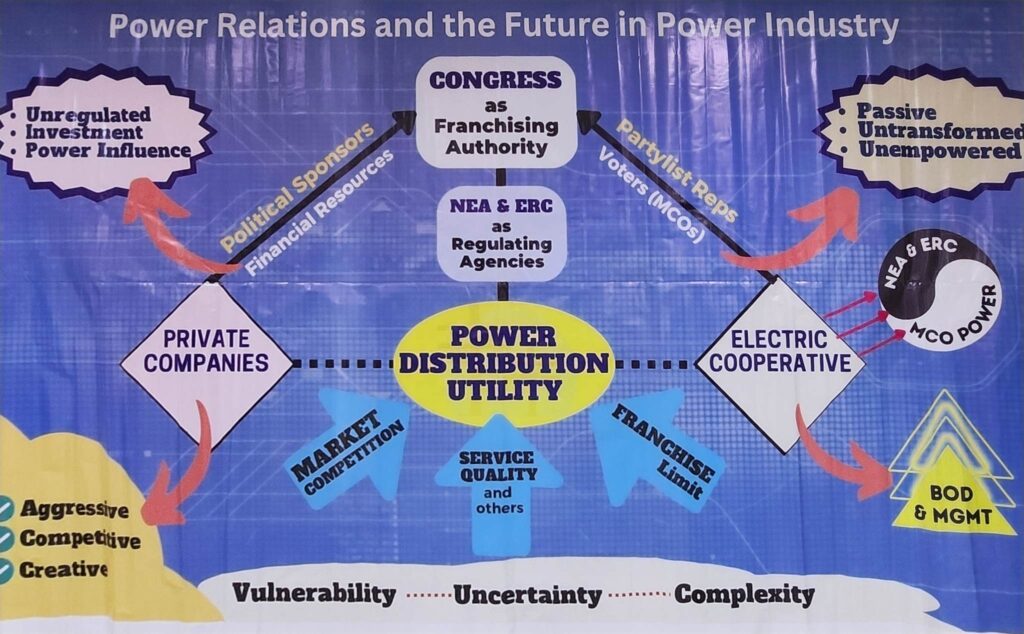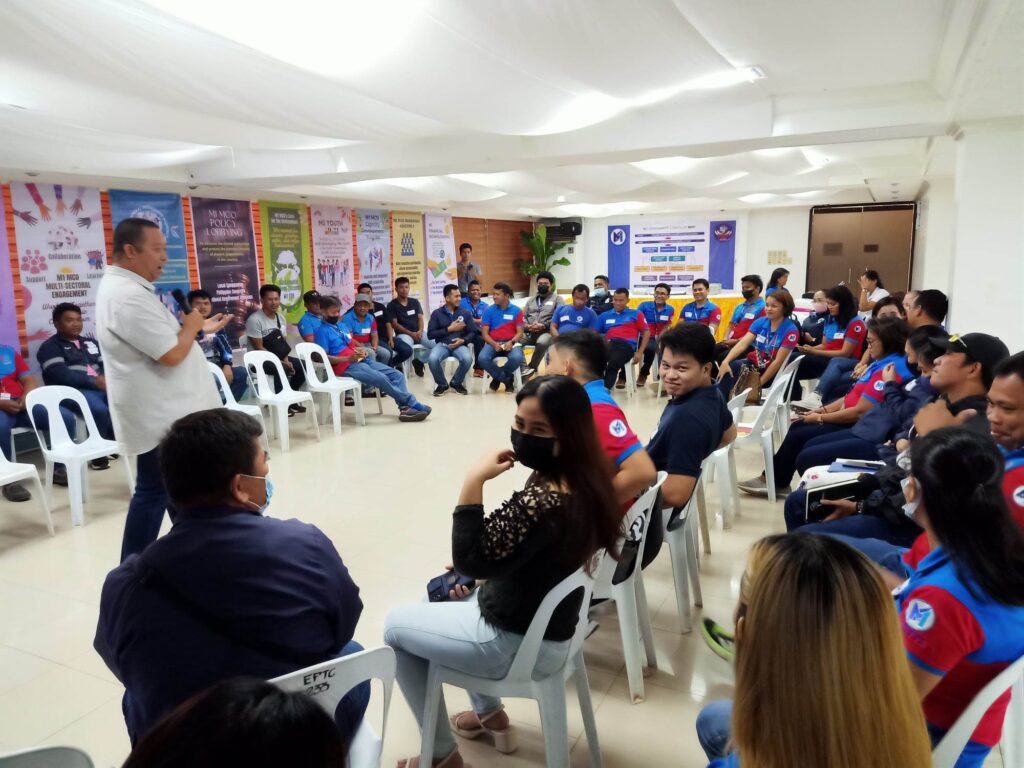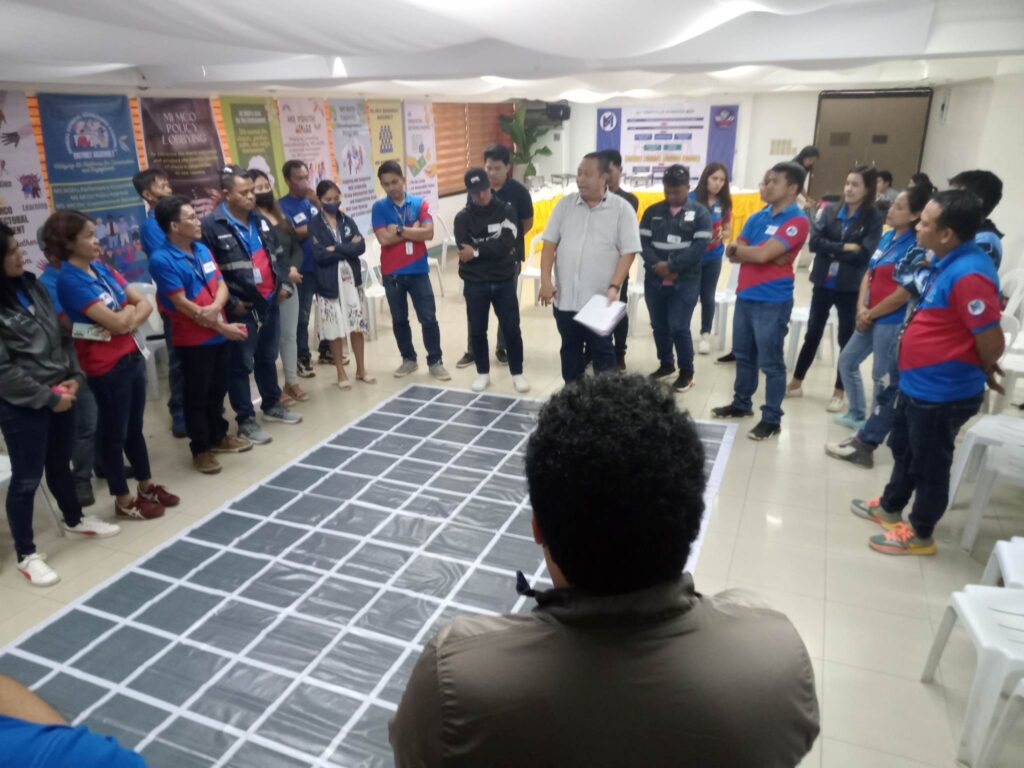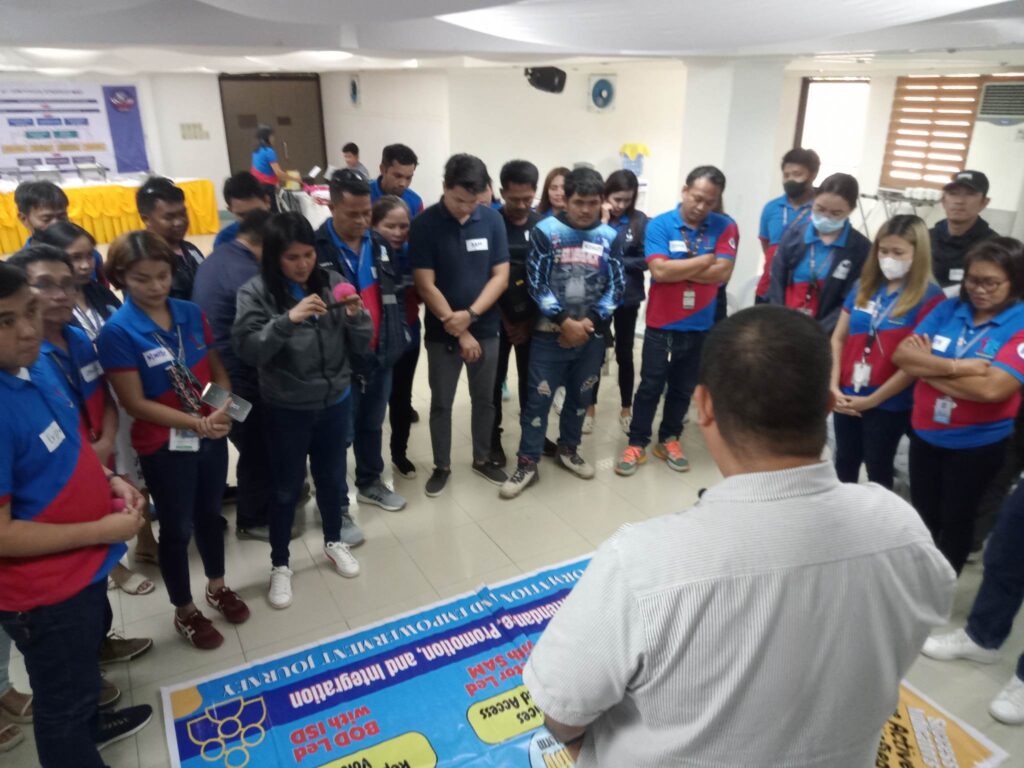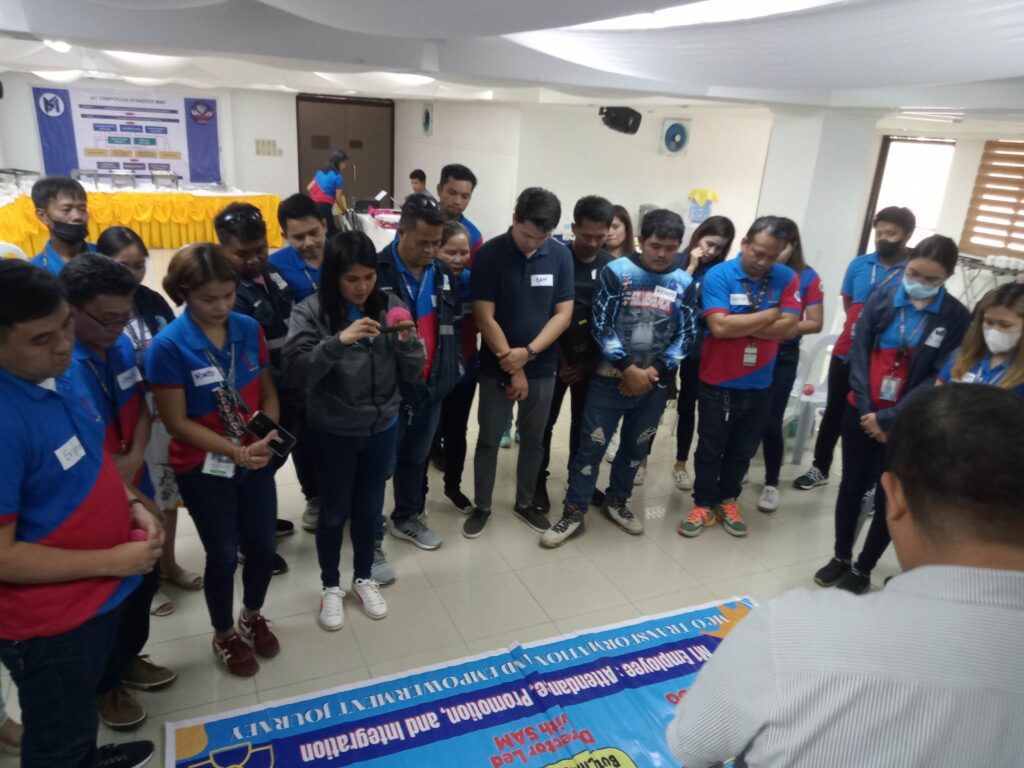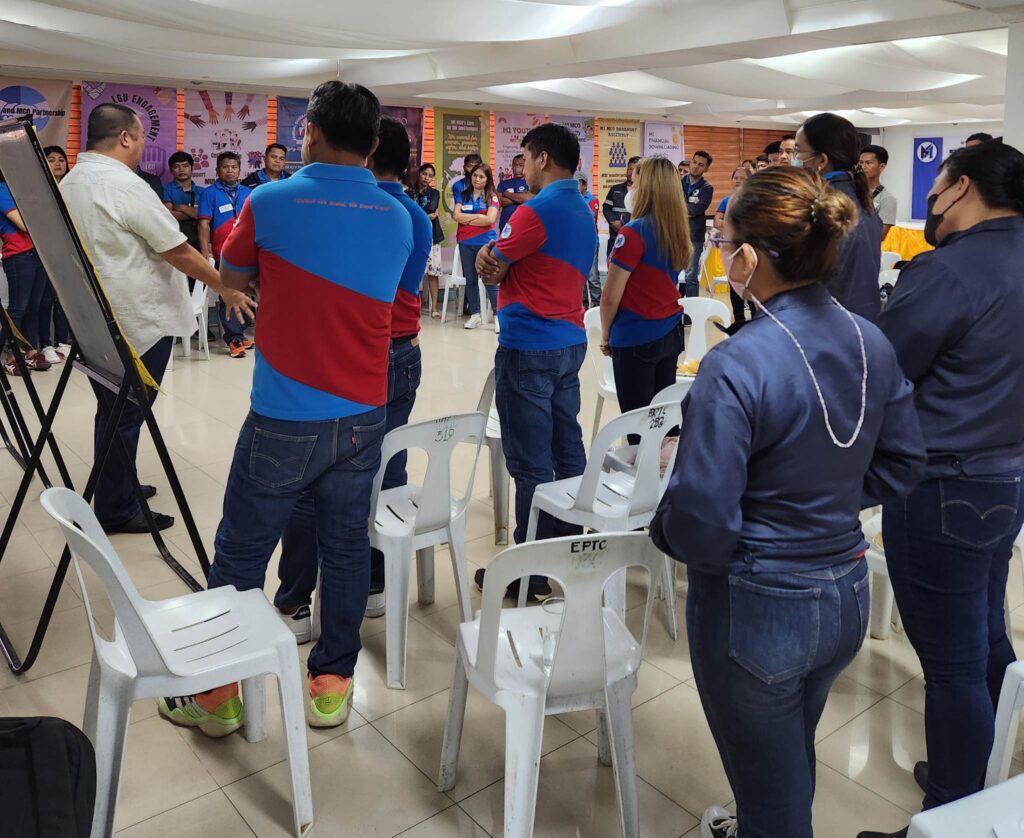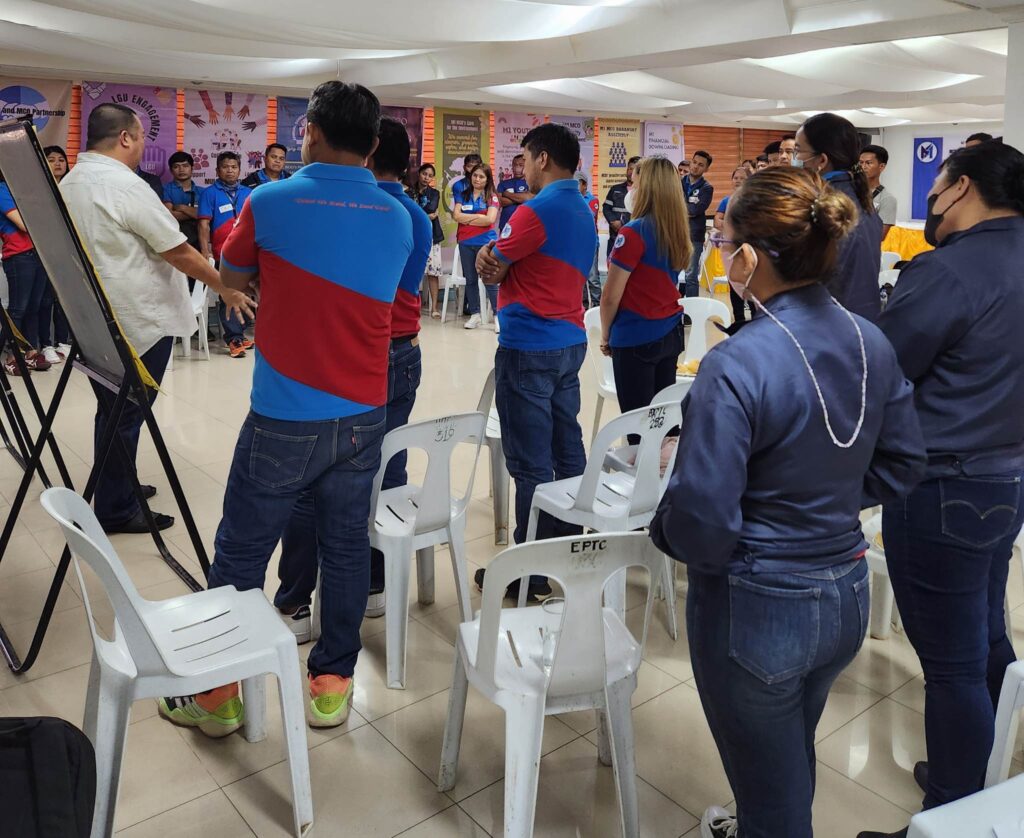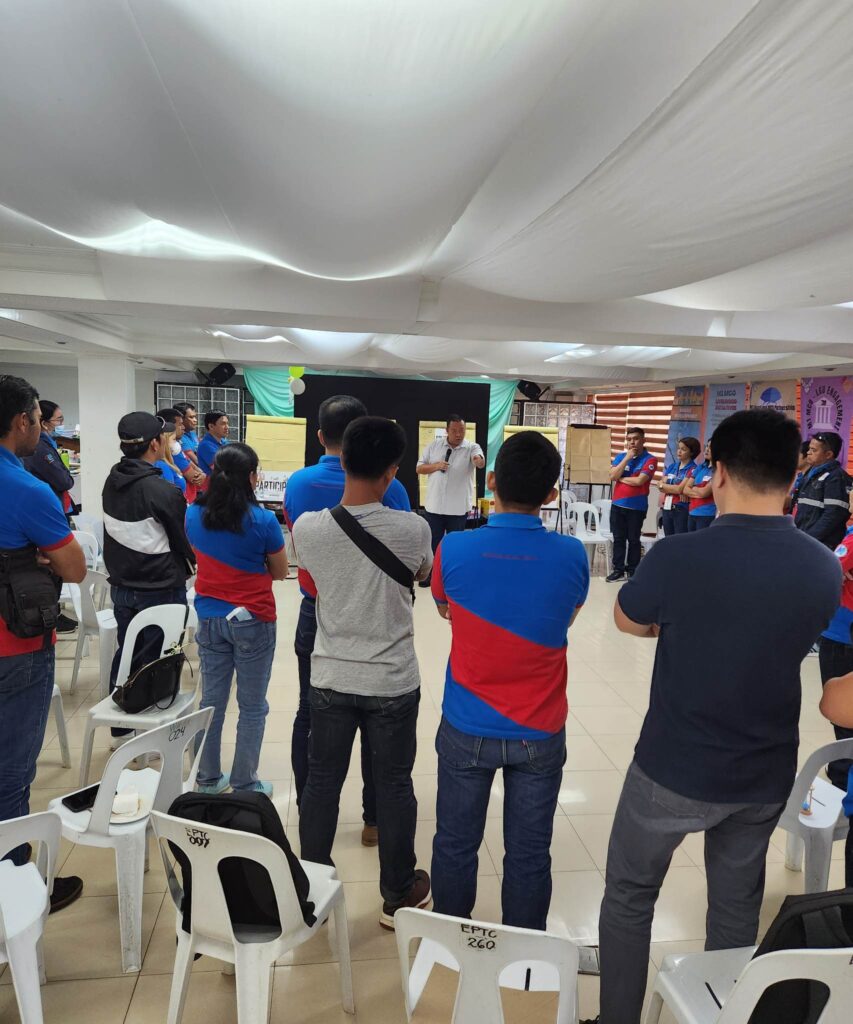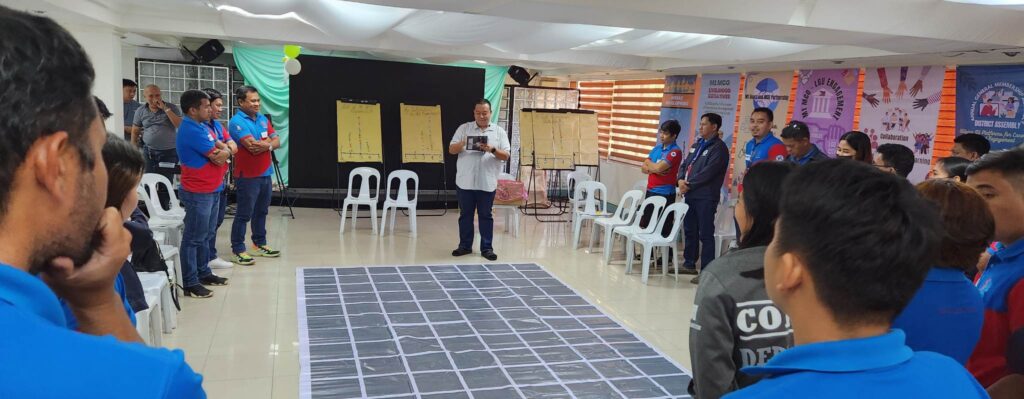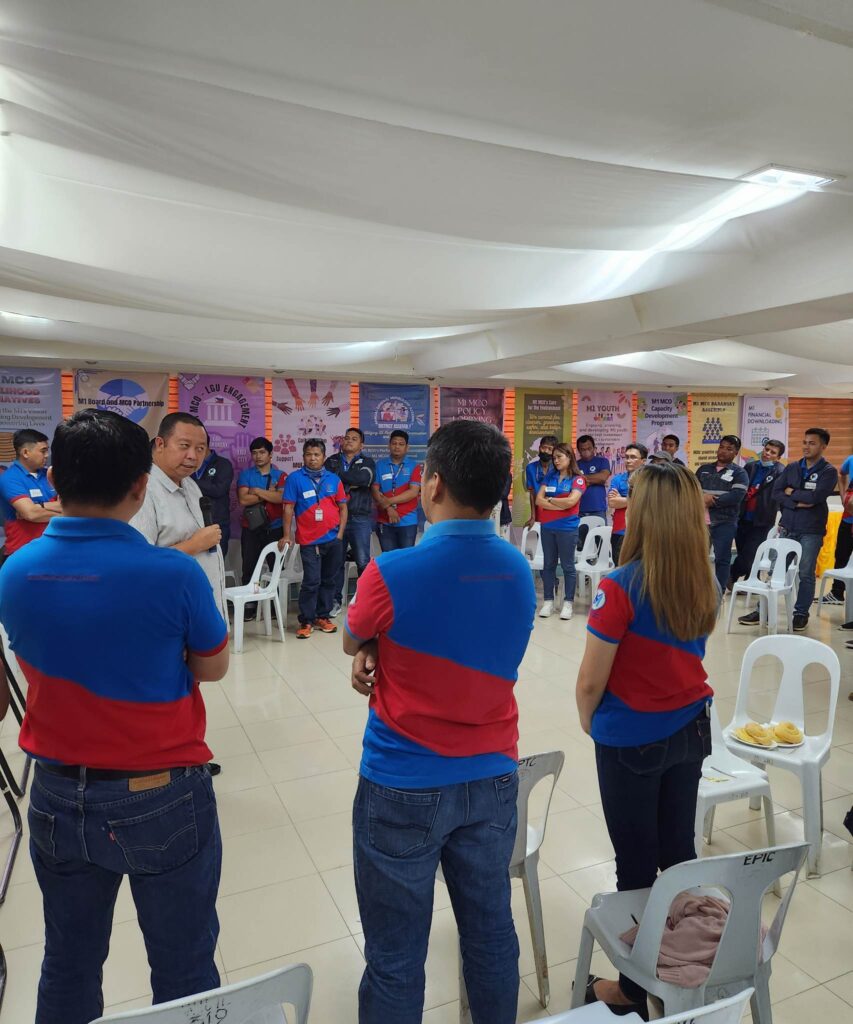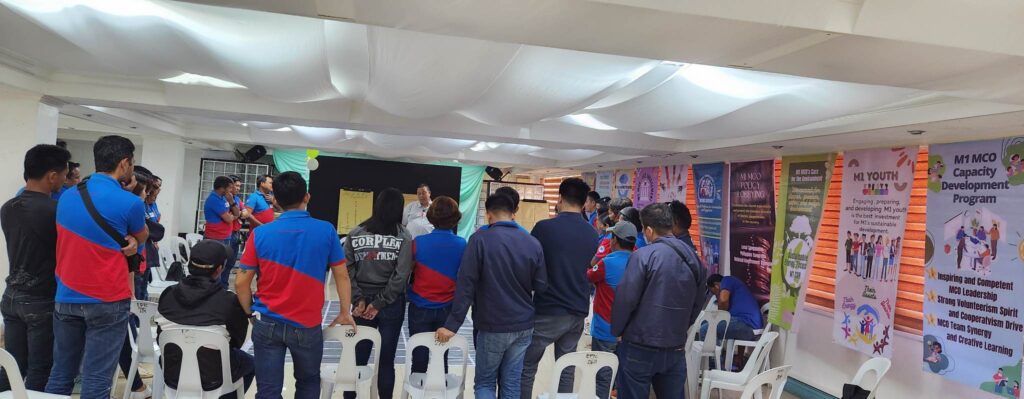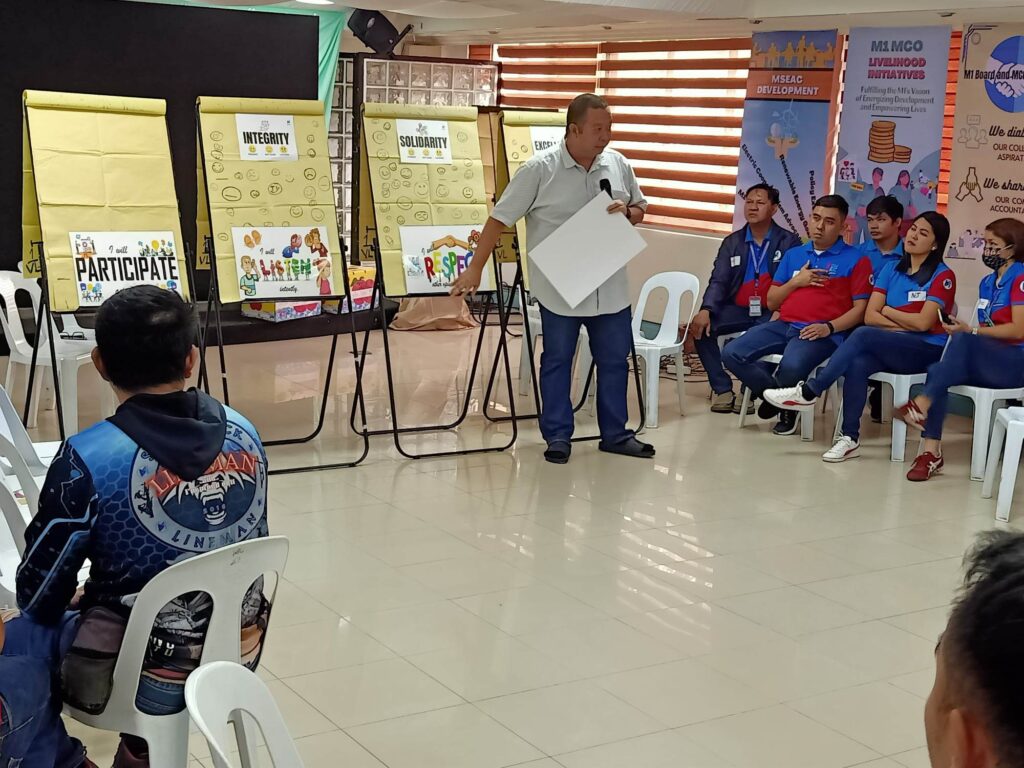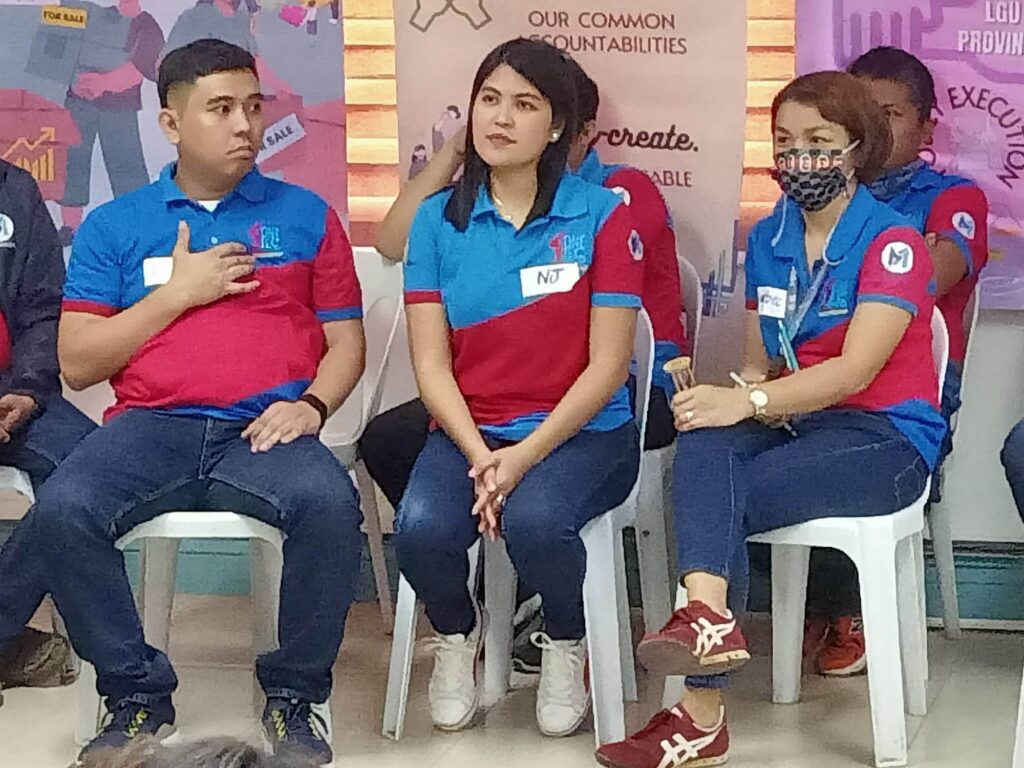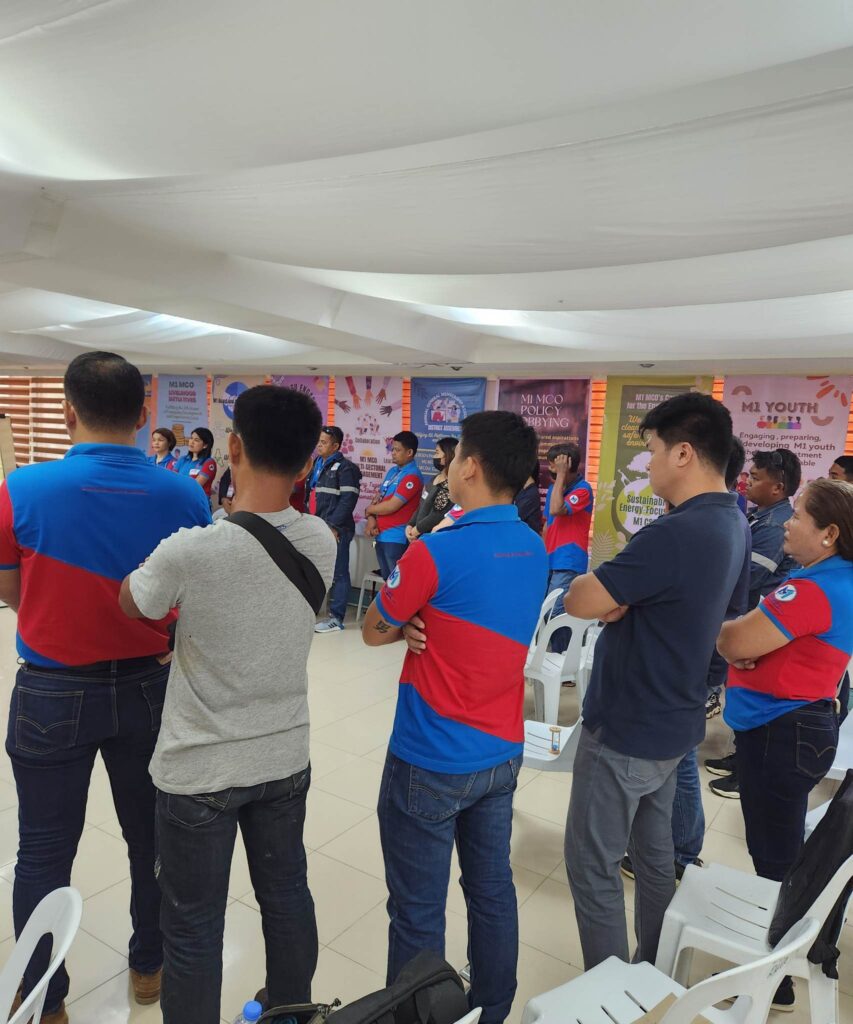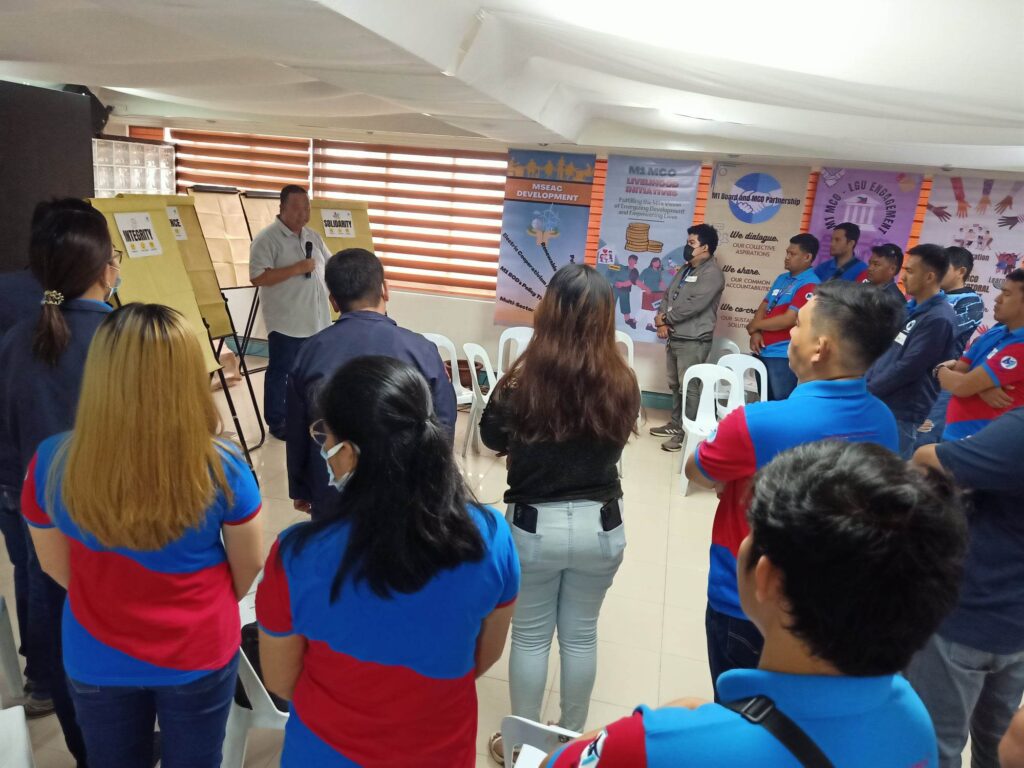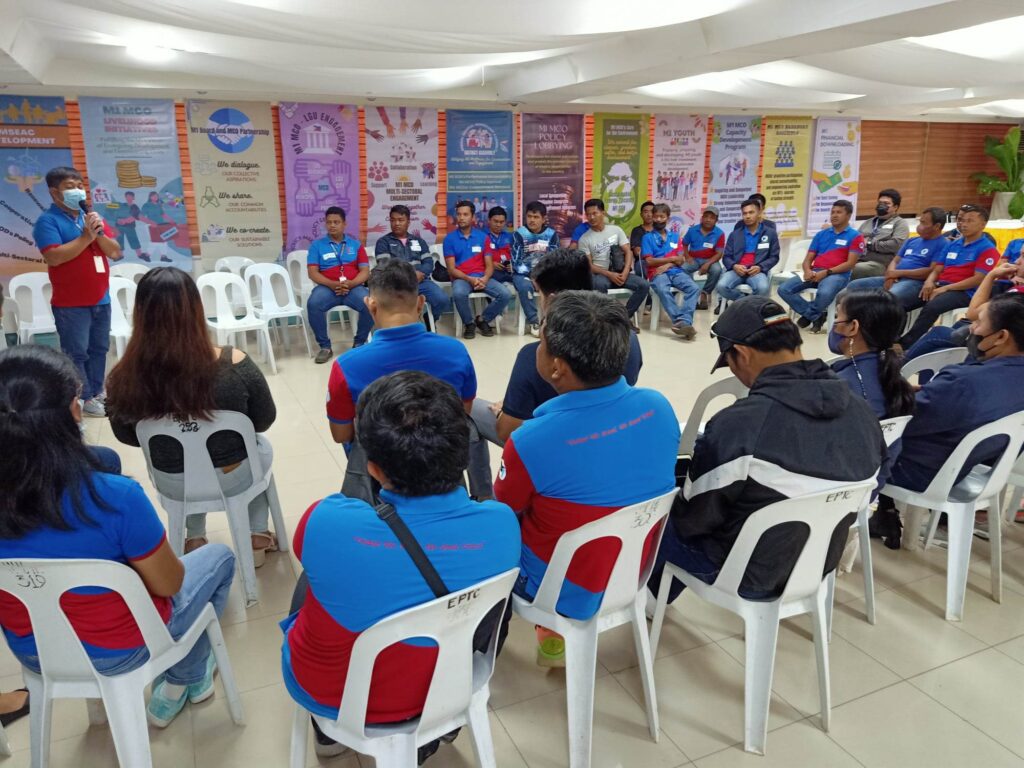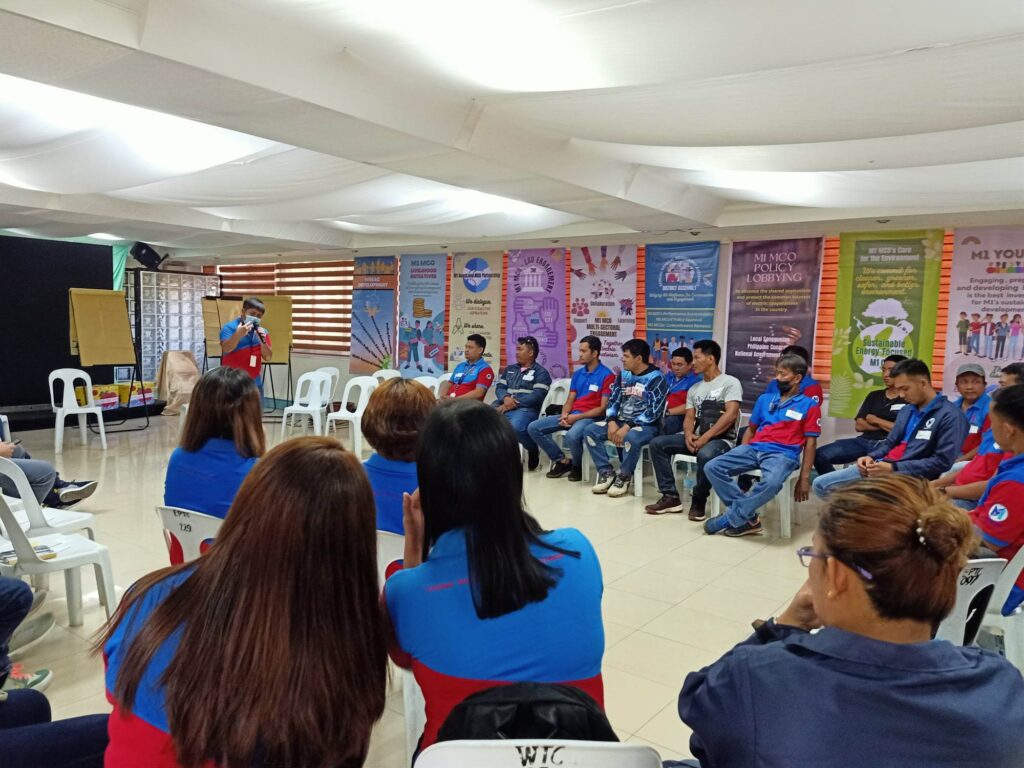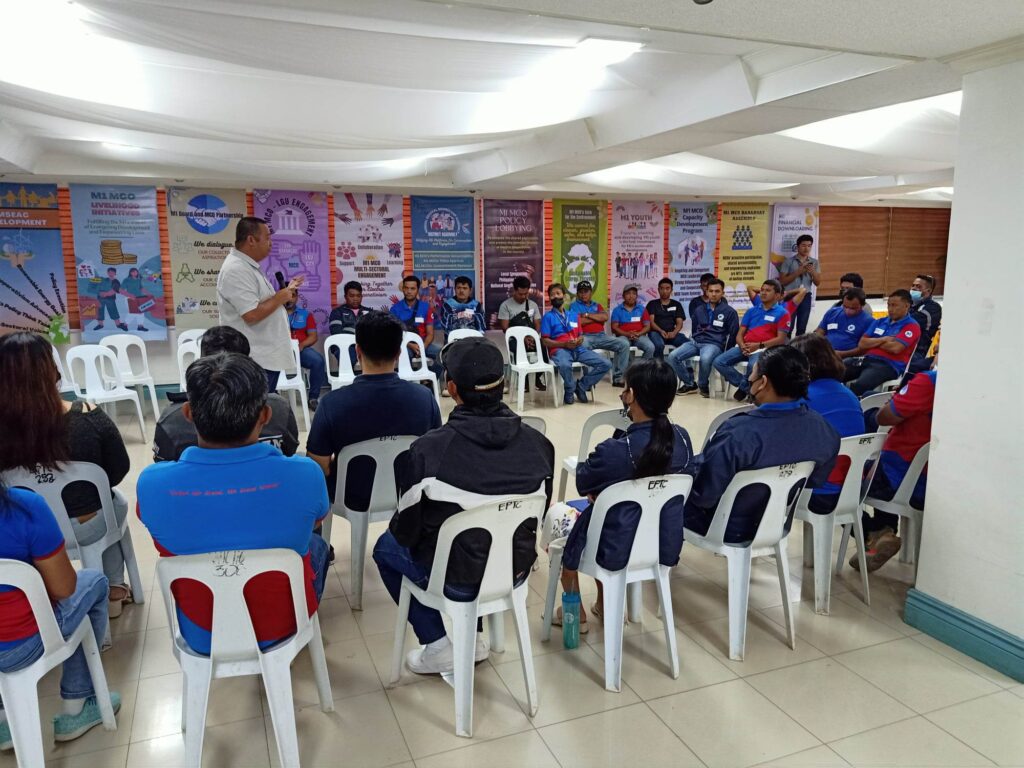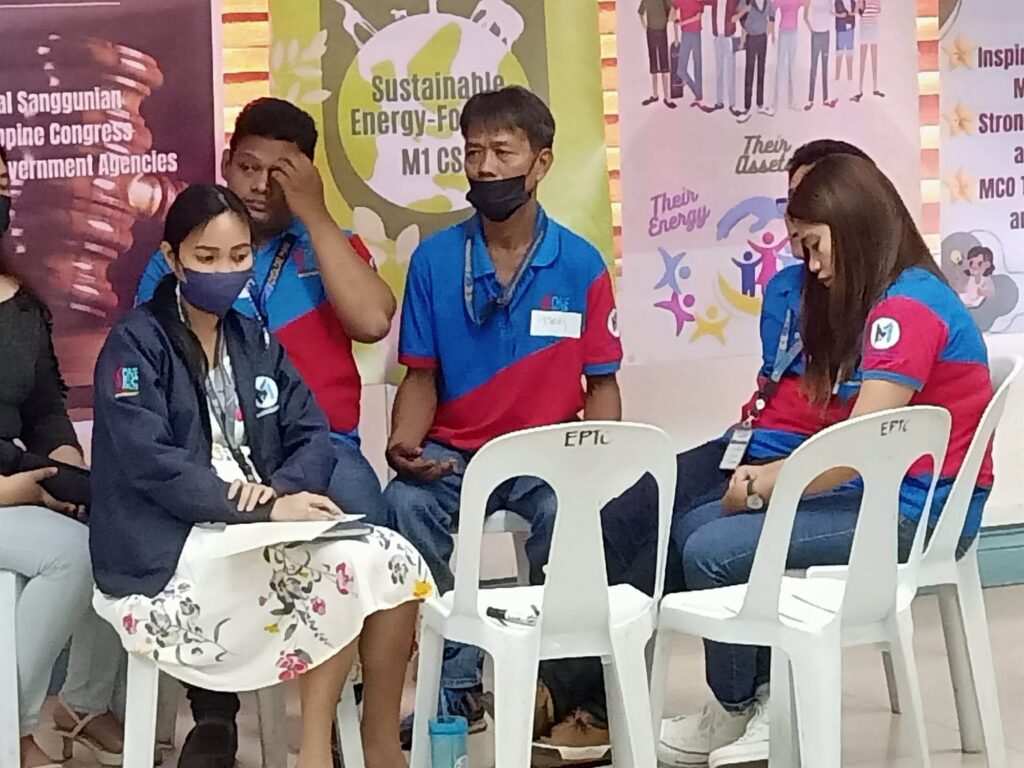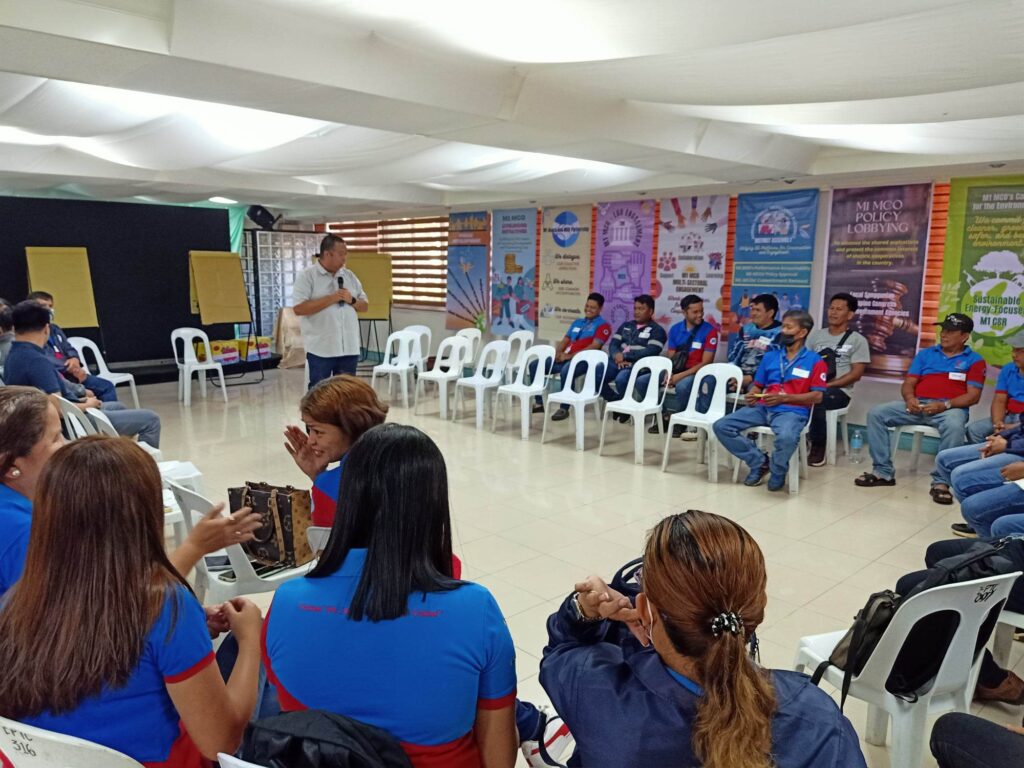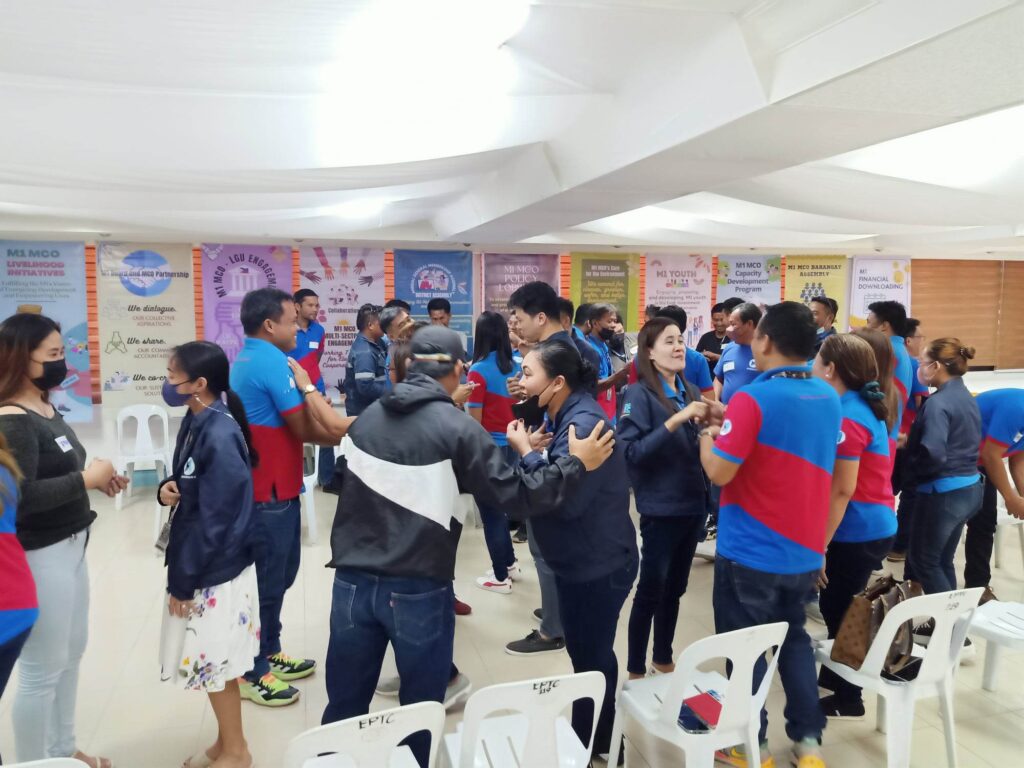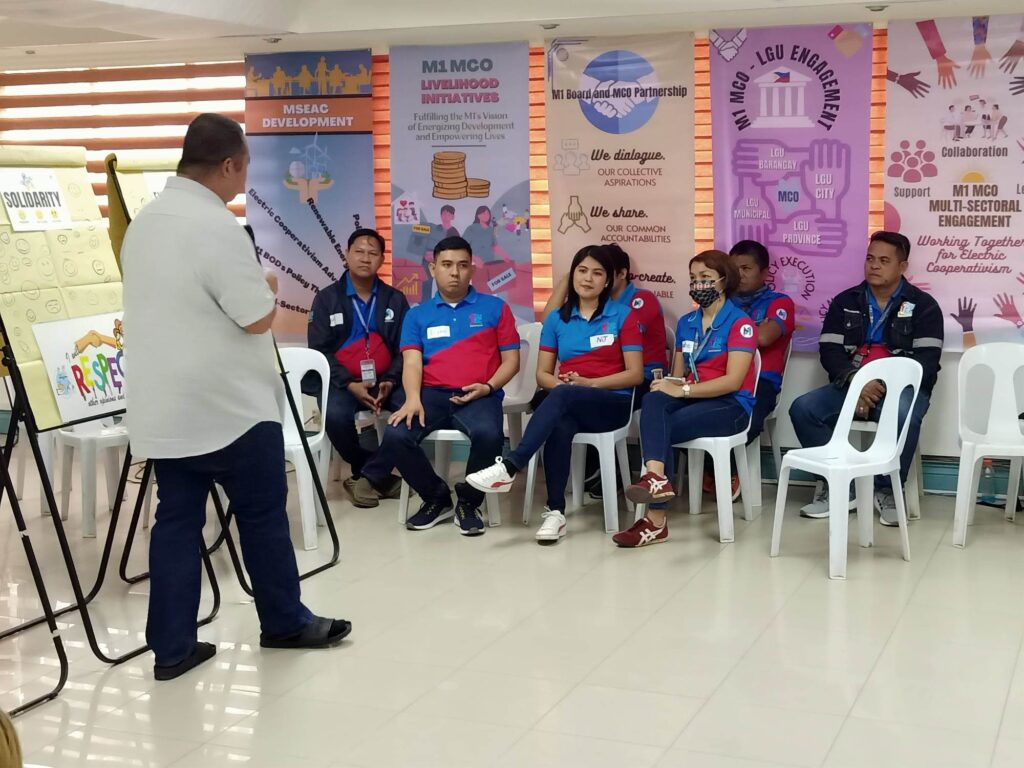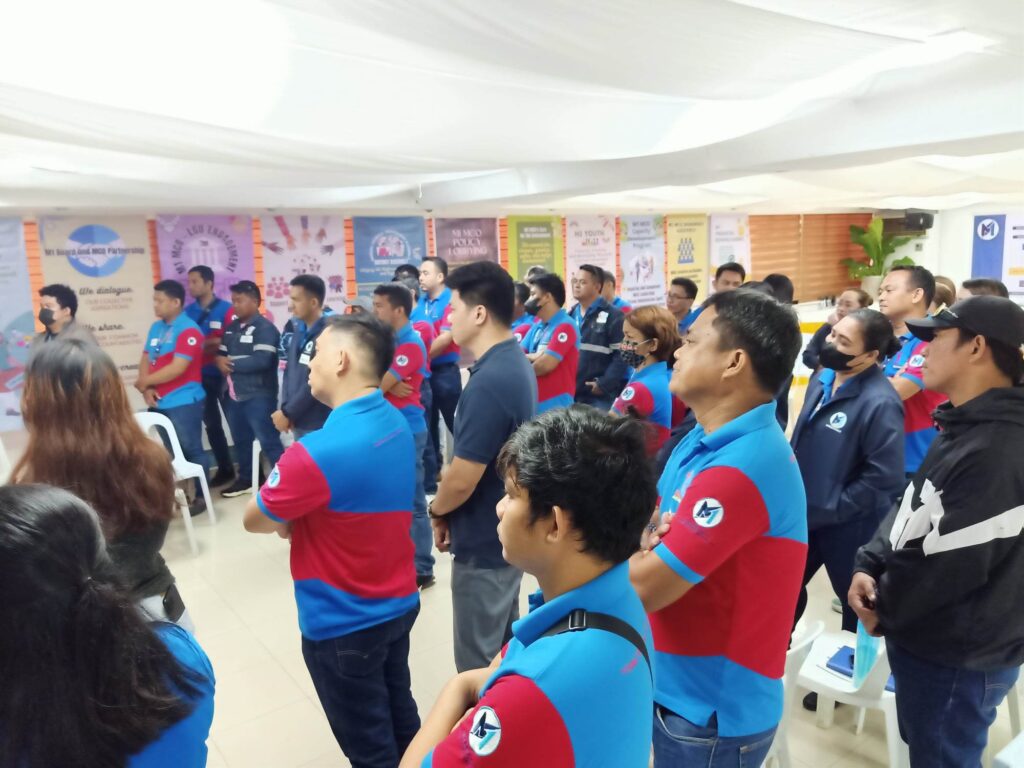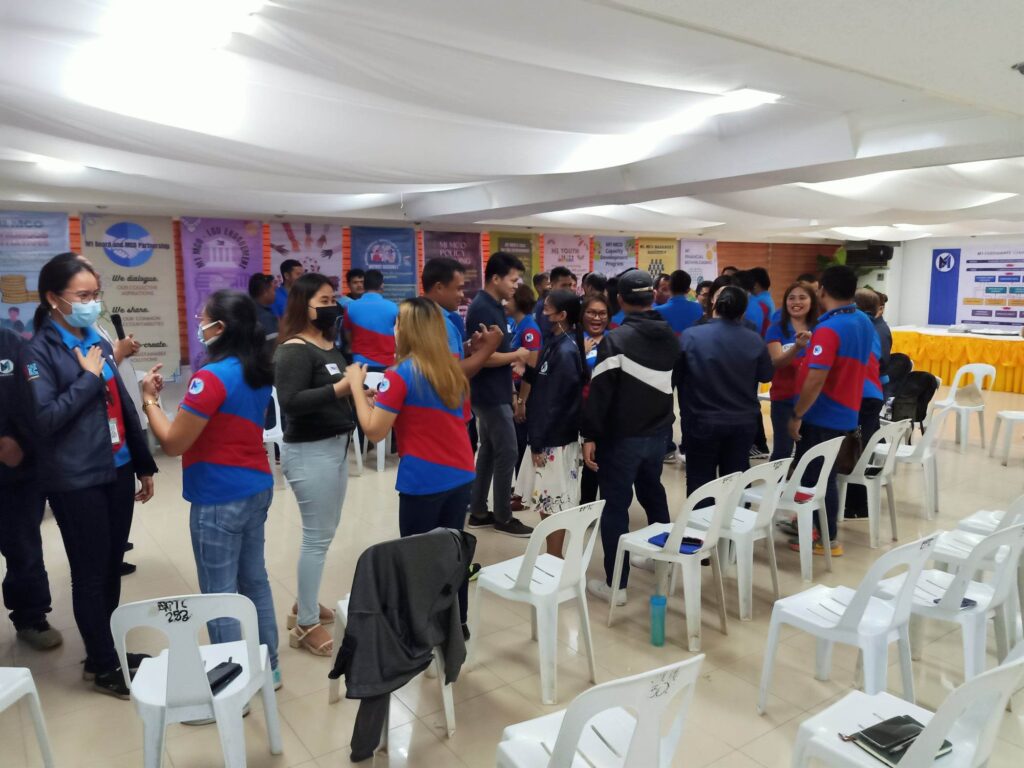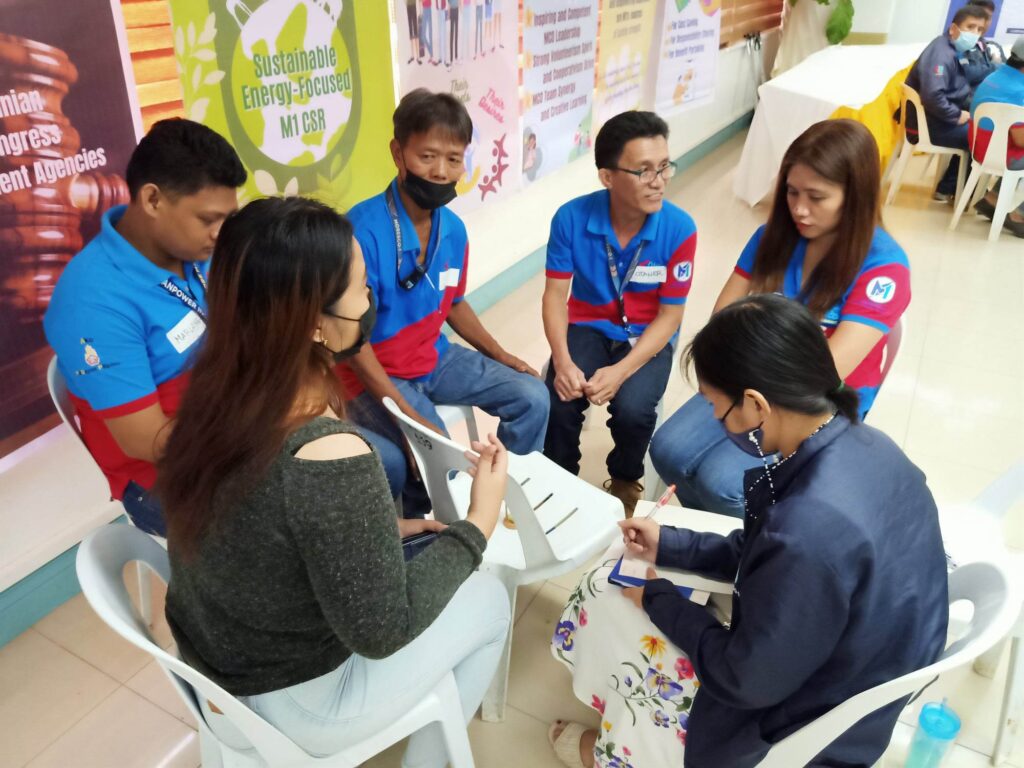March 20, 2023. EPTC Function Hall, Laguindingan – This time the Bridging Leadership and Transformational Engagement Capability Development trickles down to the personnel both organic and outsourced of MORESCO-1 with more than fifty (50) employees composed the first batch of the series of CAPDEV sessions. The group together with major process owners in MORESCO-1 got into a fun and innovative capability development workshop facilitated by Dr. Dixon Yasay.
To drive the capability development framework used, Dr. Yasay, delivered that communication and community organizing should be delivered across using fun and creativity-stimulating exercises where participants are involved in a dialogue without diluting the message.
Taking the huge tarp showing the Power Industry Scenario and how MORESCO-1 should future-proof itself, Yasay mentioned that it is about time for the EC to take a transformational engagement championing MCO activities that promote multi-stakeholder processes to address societal inequities. This is about leading collaborative action to bring about social change by involving three main segments: Building Ownership of the response, Developing Co-Ownership with other stakeholders in this case Member-Consumer-Owners (MCOs) and together engaging in the Co-Creation of a new reality.
Institutional Services Manager Edna S. Putian- Diango mentioned that it is about time for all in the electric coop to change how we see the MCO in a new light. All must create a bridge between the EC and the MCOs going back to the original concept of the EC being owned by those “we serve”. As a bridging leader or mover for the EC, whose values and principles compel him to make a personal response to address inequities and societal divides, recognizes that the complexity of the problem can only be solved by convening the MCOs to the divide. (Ownership)
Through a process of dialogue and engagement, the stakeholders arrive at a common vision and collective response to the situation. (Co-ownership).
The stakeholders then adopt a social innovation that leads to the societal outcome and carries it out through new institutional arrangements. (Co-creation)
Congratulations to the first batch. Over time, these arrangements become formal processes that lead to a reform-conducive policy environment and responsive programs and services.
